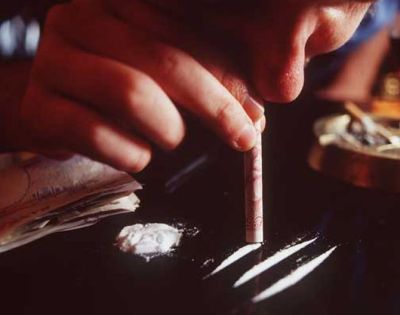Union Home Minister Amit Shah said on Friday security in the ocean needs to be strengthened as most of the narcotic drugs are shipped in Pakistan and go via Iran to Sri Lanka and Africa.

"At least 60-70 per cent of drug smuggling happens through the sea route," he said addressing the regional conference on 'Drug Trafficking and National Security' for southern states and Union territories.
"We need to have a top-to-bottom and bottom-to-top approach sparing none who is involved in drug trafficking."
He highlighted the need to investigate the chain of networks down below when a big fry was caught.
"When we catch a big fry, we need to investigate the entire chain of networks down below. When we catch a drug addict, we need to investigate those who supplied them," he said.
"If drug addiction is not controlled, it will become an incurable ulcer in the body."
"We have set a goal of drug-free India. We have the target of (becoming) a developed nation by 2047 and a five trillion (USD) economy in 2025. Drug-free society is the foundation to achieve these goals. All the governments should join hands. We have to make the eradication of drug menace a people's fight," Shah said.
Shah urged all the government departments such as revenue, social welfare, education and culture should join hands with the health department in the drive against drugs. Drug detection, network destruction, culprit detention and addict rehabilitation are the four pillars of the fight against narcotics.
"I am sorry to say that the detention of culprits is taken very lightly. We are not being stern against them. We should not take drug cases in isolation. We have to deal with it sensitively. You have to fight collectively through detection of drugs, destruction of networks, detention of culprits and rehabilitation of those addicted."
According to Shah, there are strong provisions in the NDPS (Narcotic Drugs and Psychotropic Substances) Act, which are not being implemented effectively.
"Please review it and find out how many properties of drug dealers have been confiscated, and how many of them have been jailed using these laws," he suggested.
He reminded the officers that the Centre under the leadership of Prime Minister Narendra Modi has adopted a zero tolerance policy against drugs to make India drug-free country.
He further said that under the platinum jubilee of the Indian independence, it was decided that during the 75-day campaign starting from June 1, 2022, 75,000 kg of narcotics will be destroyed.
A total of 5,94,620 kg of narcotics worth Rs 8,409 crore has been destroyed so far, over-achieving the target manifold, Shah said.
The Union minister noted that his ministry has adopted a three-pronged approach to crackdown on narcotics, which includes strengthening institutional structures, empowerment of all agencies related to control of narcotics and launching an awareness campaign.
Shah told the gathering that a total of 1,257 cases were registered between 2006 and 2013, which increased by 152 percent to 3,172 between 2014 and 2022, while, the total number of arrests during the same period increased by 260 percent to 4,888 from 1,362.
Similarly, during 2006-2013, 1.52 lakh kg of drugs were seized, which doubled to 3.30 lakh kg during 2014-22. Drugs valued at Rs 768 crore were seized during 2006-2013, which rose by 25 times to Rs 20,000 crore during 2014-2022.
During the event, 9,298 kg of seized narcotics worth Rs 1,235 crore were destroyed.
Apart from this, a memorandum of understanding was also signed between the Rashtriya Raksha University and the Government of Karnataka to open a new campus of the University at Shivamogga.